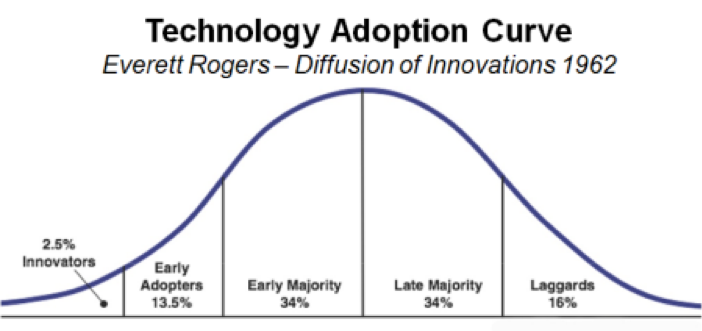Scaling a start-up can certainly be challenging in emerging markets. It requires a thoughtfully developed sales process, intentionally recruited salespeople, and effective training and leadership to support them. Challenges with hitting sales targets are often repercussions from poorly executing in these areas. With this in mind, the Mobile for Development Utilities and Ecosystem Accelerator teams ran an online clinic for the programmes’ current portfolio start-ups and Mobile for Development Utilities grantees.
We invited two industry experts to lead the session – Chad Spain and Nick Kingesley-Johnson – from Whitten & Roy Partnership, who are well versed in helping businesses and impact-oriented organisations conquer sales challenges. Drawing on several decades of sales experience in both the for-profit and not-for-profit sectors, Whitten & Roy Partnership offers an ethical, human centred sales approach that is fit for use by socially-minded organisations that are concerned with the well-being of their own people and the clients they serve. Over the last decade, the team delivered over 100 sales transformation projects across 24 countries in Asia, Africa and Latin America, working across sectors ranging from agriculture, energy, education, financial inclusion, healthcare, Water Sanitation and Hygiene (WASH) and others.
In this webinar, the consultancy’s two sales experts unpacked an approach to help start-ups sell more sustainably by engaging customers to help them make the best possible buying decision. Here are some of our key takeaways.
Companies commonly face similar sales challenges – irrespective of their sector
Above all, Whitten & Roy Partnership has found that there are common mistakes that companies make to lead buyers through a good buying process, and that these lessons apply widely across sectors, geographies, and demographics.
Prior to the webinar we asked our start-ups to complete a survey. Despite working across multiple sectors, ranging from agritech, edtech, WASH, and energy focused solutions, parallels could be drawn from their replies. Below is a list of the top challenges they face linked to customer behaviour:
- Low responses to cold calls and emails;
- Difficulty in identifying and getting access to decision makers;
- Lack of priority toward their product or service;
- Deals stall, take long to close, stagnate and drop completely; and
- Customers ‘wait and see’ before buying.
Importantly, Whitten & Roy Partnership’s experts pointed out that there are internal factors companies often neglect. As organisations can be so focused on the product or service they supply, they often disregard putting in place a cohesive sales strategy to gain and maintain customers. In fact, companies regularly overlook effective communications and purposeful customer engagement. Common causes of these issues include a lack of strategic intent and planning of sales activities, along with falling short on recruiting, developing, and retaining salespeople. This even includes pitching solutions before uncovering the customer’s needs.
As a first step, Whitten & Roy Partynership recommends exploring the issues that the customer base commonly faces and unpacking the cost of these problems when allowed to persist. This creates a business case for the customer to solve the problem by investing into your solution, and should be central to the approach taken by the sales team.
Sales success is rooted in selling well to the ‘market majority’
Referring to the ‘Innovation adoption curve’ by sociologist and communication theorist, Everett Rogers, Whitten & Roy Partnership illustrated that ‘innovators’ and ‘early adopters’ buy for different reasons than the market majority. As a result, the market majority typically needs to be sold to in a different way if a company wants to more deeply penetrate their market.
Whitten & Roy Partnership provided a framework called DQ® Sales, in which the salesperson leads the customer on a problem-led discussion, rather than pitching products and services which results in sensitivity to price, hesitation to take action, and poorly made decisions.
The chart below illustrates how digging deeply into the problem, and the cost of the problem if unsolved, enables the customer to feel more confident that the solution will provide meaningful value. This helps the customer have greater ‘decision intelligence’ [DQ] about the product or service being offered.

[Photo taken from Whitten & Roy Partnership slides during webinar, copy of Whitten & Roy Partnership]
Diagnosing your sales approach: Look at the levers that drive results
Another common mistake that Whitten & Roy Partnership commonly finds businesses make, is that they focus too much on the result, and not enough on the factors that deliver them. Their RACE™ model outlines the three levers that can be pulled to improve sales. If you want to improve the ‘R’, they say you need to improve attitude, competence, and/or execution – and the first step is diagnosing the gaps you have in these three areas across your sales function.

[Photo taken from WRP website]
Takeaways: How to help your customers buy well!
- Understand customer buying behaviour and sell to them in a way that helps them buy well. Pitching solutions may work for ‘early adopters’, but the ‘market majority’ buys in a different way, so sell to them accordingly.
- People are inherently hesitant to change, so they will resist taking action unless they feel concerned about a costly problem, and confident about the solution. Lead them through this process, uncover and remove the blocks that emerge, and leverage advocates to close deals.
- Source salespeople using a thoughtful process, and prepare them well by going beyond product training – train them how to sell effectively. Leaders should support the team through continual learning and development exercises.
We would like to thank Chad Spain and Nick Kingesley-Johnson for sharing their expertise, experience and knowledge with our portfolio start-ups. We would also like to thank the start-ups from the GSMA Ecosystem Accelerator and Mobile for Development Utilities portfolio for making the session an interactive one.
The Ecosystem Accelerator programme is supported by the UK Department for International Development (DFID), the Australian Government, the GSMA and its members.

The GSMA Mobile for Development (M4D) Utilities programme is funded by the UK Department for International Development (DFID), USAID as part of its commitment to Scaling Off-Grid Energy Grand Challenge for Development and supported by the GSMA and its members.




